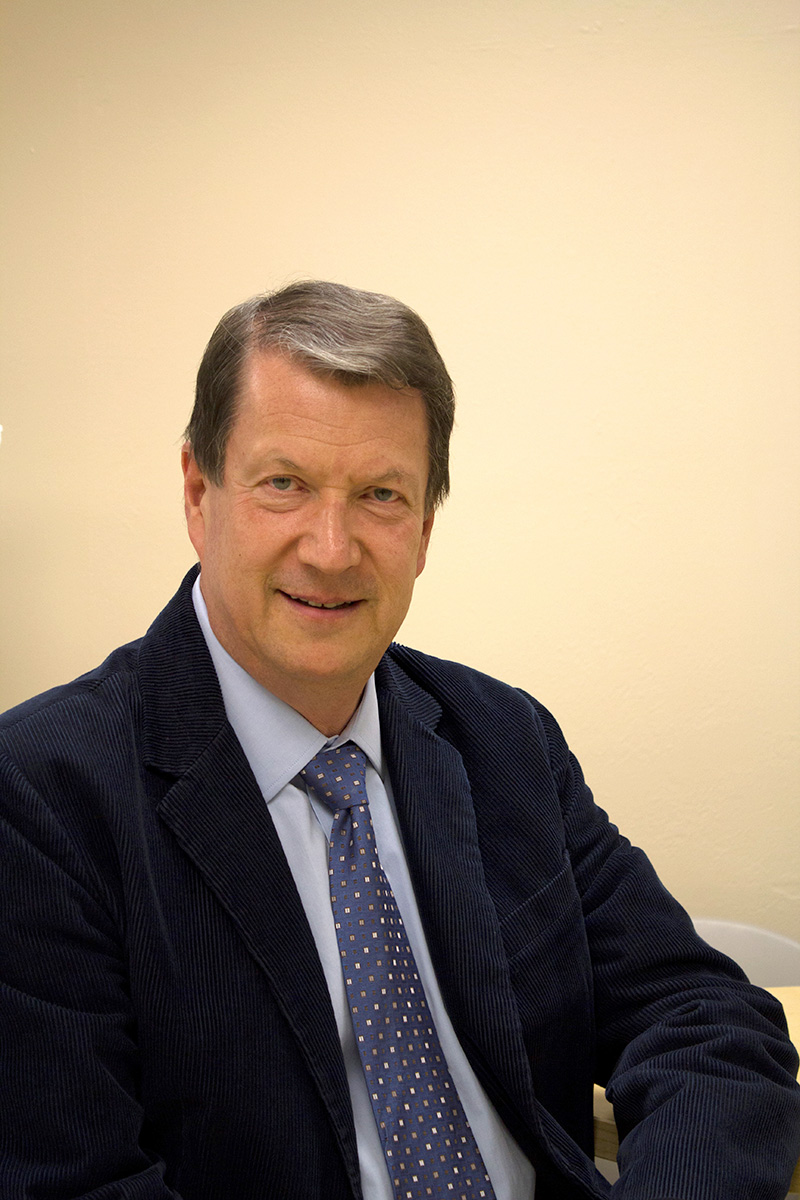It’s not all that often that biologists discover a new process, but Vojo Deretic, PhD, Distinguished Professor and chair of The University of New Mexico Department of Molecular Genetics & Microbiology, can speak from experience.
Deretic will share his breakthrough discoveries involving an essential cellular process known as autophagy when he delivers UNM’s Annual Research Lecture (ARL) on Thursday, March 30, at 5:30 p.m., in the Domenici Center Auditorium.
The ARL is one of the highest honors UNM bestows on its faculty members in recognition of their creative research activity.
“Looking back on the history of the ARL gives me a great sense of pride in the Lobo research community,” said Ellen Fisher, PhD, UNM’s Vice President for Research. “Over the many years of the ARL’s history, we see a rich narrative of honoring and celebrating research and scholarly activity. The diversity and breadth of the research areas and people recognized by the ARL is breathtaking. Our most recent recipient, Vojo Deretic, is no exception.”
Deretic is director of UNM’s Autophagy, Inflammation and Metabolism Center of Biomedical Research Excellence. He received his undergraduate, doctoral and postdoctoral education in Belgrade, Paris and Chicago.
He launched his research career in at The University of Texas at San Antonio, and went on to work at the University of Michigan before ultimately arriving at UNM in 2001.
“There is a widely held assumption that to succeed it’s vital to work at universities with prestige reputation,” Deretic said. “That’s just not the case and it doesn’t work for me. All of my successes – the real contributions to science – have happened here at The University of New Mexico.”
Deretic is one of a small group of scientists from around the world who have contributed to the understanding of autophagy, a “housekeeping” process by which cells rid themselves of debris. He focuses on the role played by autophagy in regulating infection and immunity, with an eye toward potential treatments for diseases like tuberculosis and HIV.
Autophagy is activated in the body in periods of calorie restriction. This stimulates cells to sustain themselves by digesting proteins in their interiors, ultimately providing energy and nutrients until the next meal.
Once triggered, autophagy also seems to protect the body by absorbing and digesting foreign microbes, cancer cells and the byproducts of aging.
“At Michigan I was studying in the immune aspects of infectious disease to include tuberculosis and cystic fibrosis,” Deretic said. “I had multiple strong projects funded by NIH, but they weren’t breakthroughs like this work within the field of autophagy. Those projects were lateral development.
“Once I came to New Mexico, the process of autophagy was just beginning to come into play, and I was perfectly positioned with thinking that it could defend against pathogens when they get into the cells. That was one of the earliest contributions. Then all of these immunological functions of autophagy have exploded since.”
Deretic’s team contributed to the discovery that autophagy is a major effector and regulator of immunity and inflammation. In 2021, his achievements were recognized when he was selected for a prestigious MERIT (for Method to Extend Research in Time) grant award from the National Institutes of Health. It meant that he would have his research funded for another eight to 10 years without having to submit it for a competitive renewal process.
Douglas Ziedonis, MD, MPH, executive vice president for Health Sciences and CEO of the UNM Health System, praised Deretic’s accomplishments as a researcher and educator.
“We are all so proud of his accomplishments in research, and the way he mentors and demonstrates team science and team building,” Ziedonis said. “I continue to learn so much from him and be inspired by him.”
Deretic credits much of his success to his colleagues and research teams.
“I think it’s important to recognize that along the way, I didn’t do it alone,” he said. “I had trainees and my colleagues right beside me. One thing that has been great to witness over my career is so many of my trainees are now faculty and colleagues here at the UNM School of Medicine. It gives you joy to see them independently grow in their own fields, and I’ve had more than 40 trainees over my career.”
Apart from his major contributions to science, Deretic has traveled around the world to places including Cusco, Peru, Kyoto, Japan, and Florence, Italy, but right at the top of his list is Santa Fe, N.M.
“The one thing all these places have in common is this fusion of cultures,” he said. “Santa Fe is one of my favorite cities in the world. I have never felt at home in any place that I’ve lived, but I feel at home here and that makes working here even more fascinating.”
Deretic’s lecture, “Autophagy: The Double Membrane in Immunity and Beyond,” is dedicated to his late friend and colleague, Dr. Beth Levine, who worked alongside him to explore the role played by autophagy in the context of immunology.
“If there is one thing I’ve learned in my career in research, it’s that it’s not what you do but the way you think while doing it,” Deretic said. “Throughout my time here in New Mexico I have really felt obliged to give back to this state and all the people in it, and I really hope through my work, I’ve done just that.”
